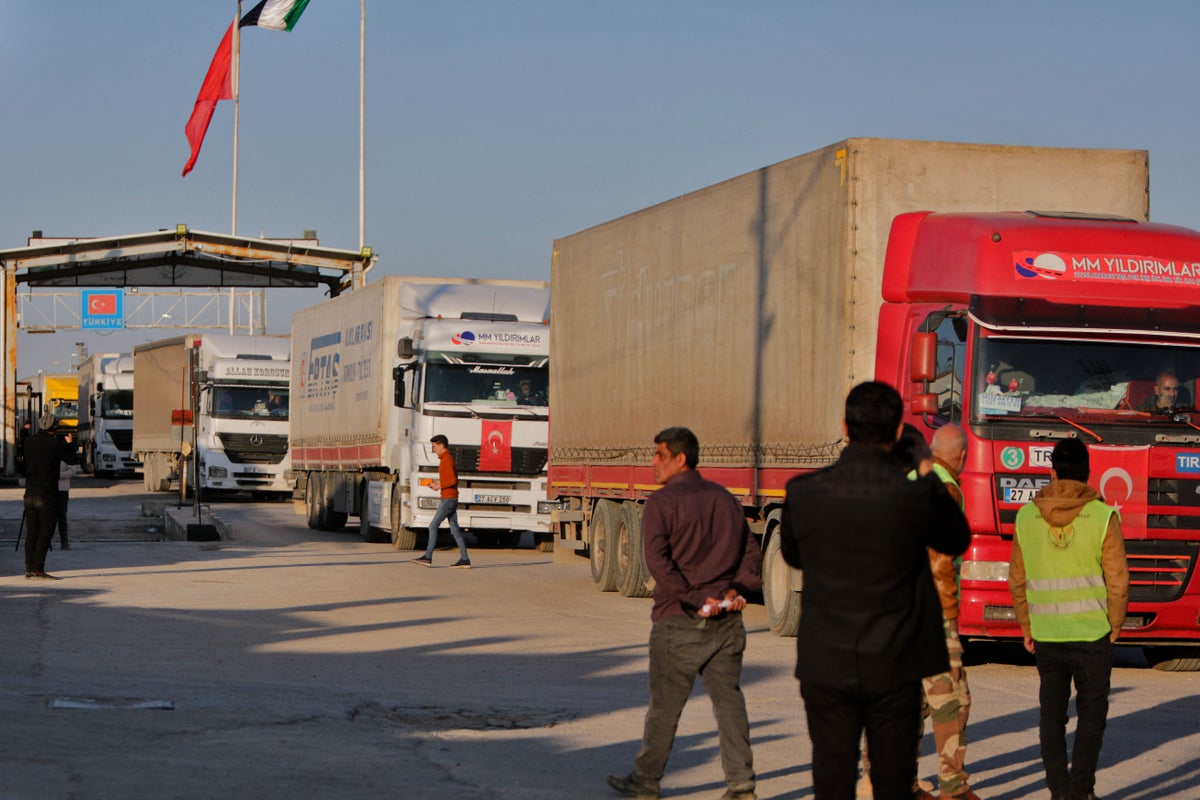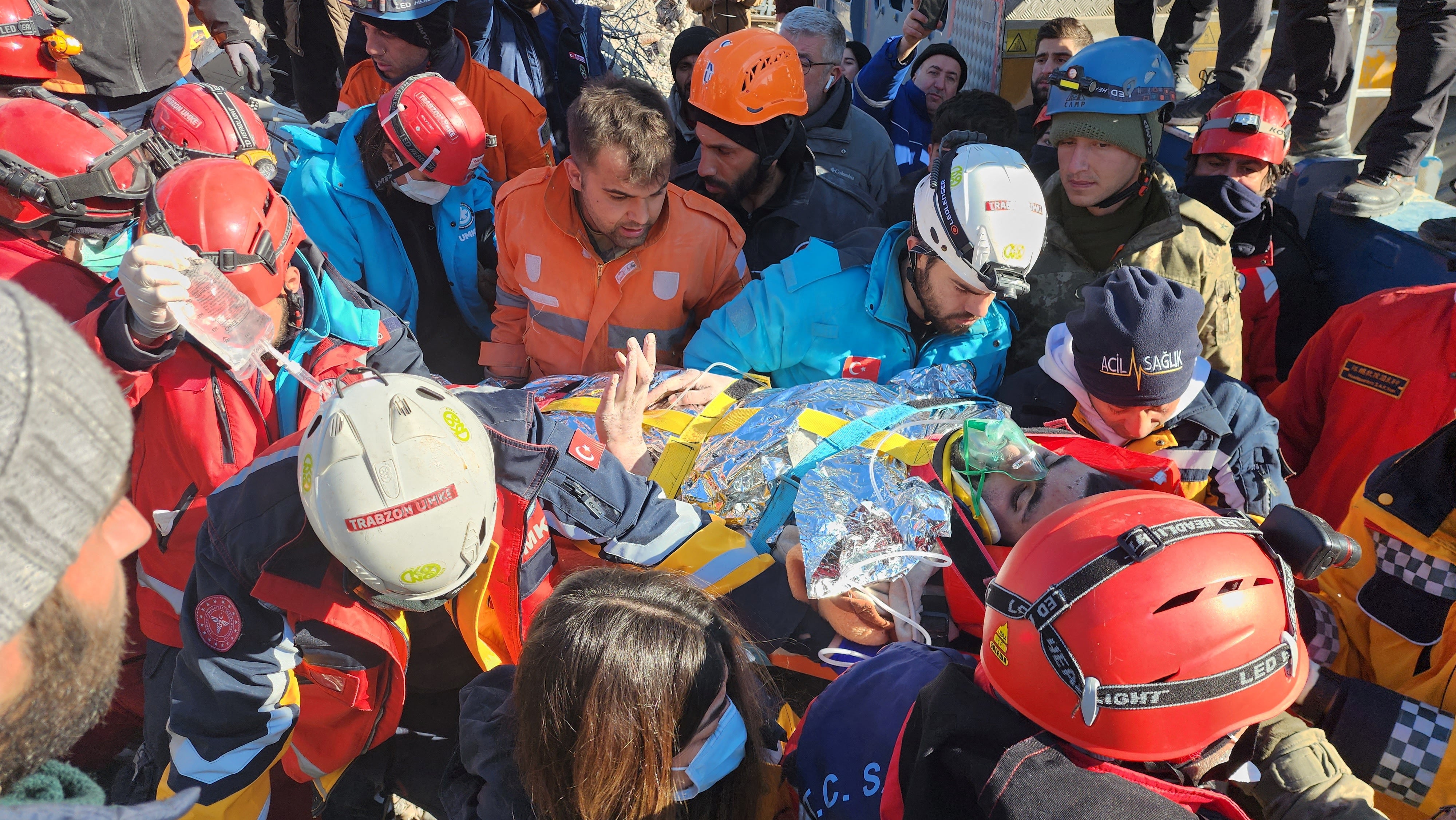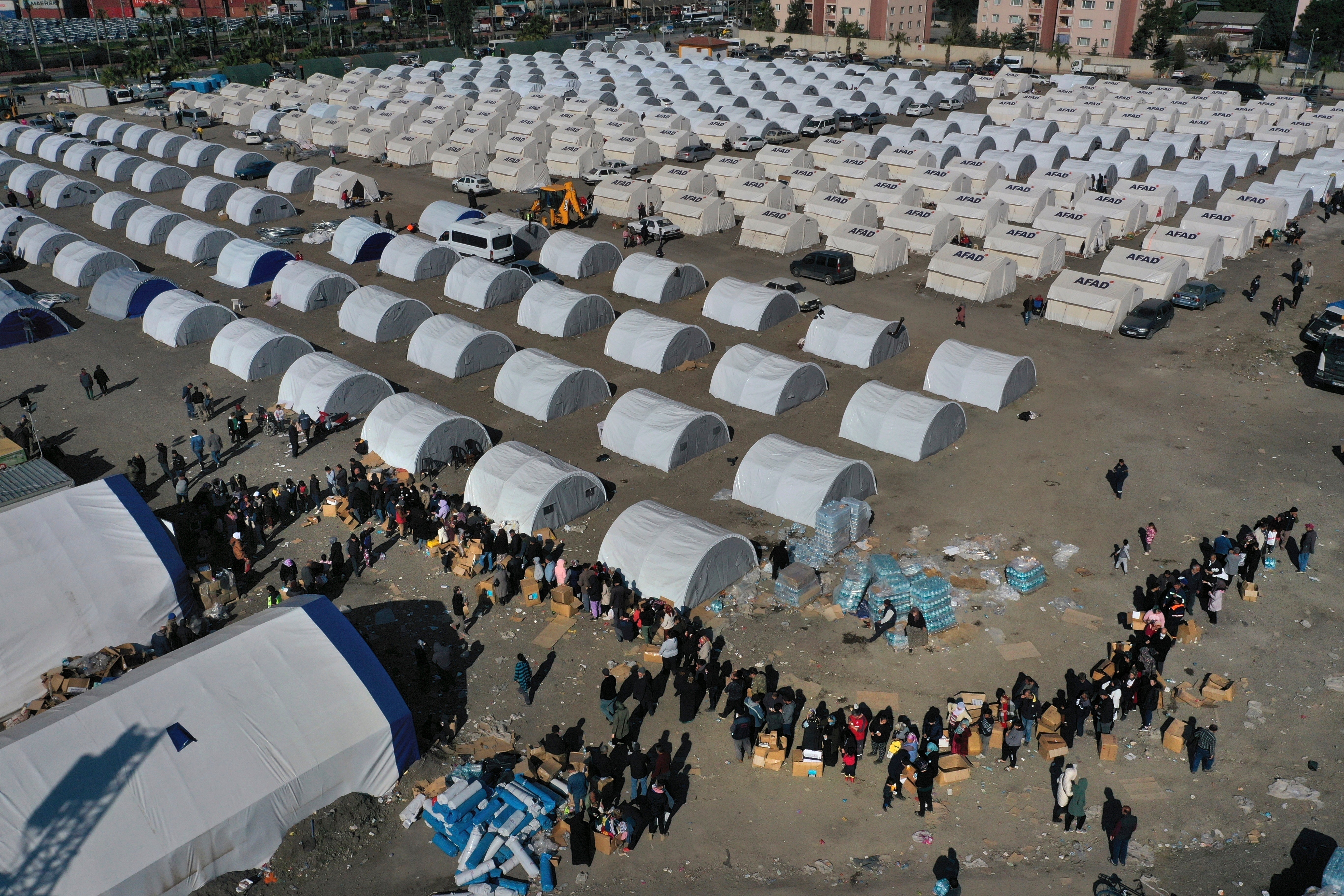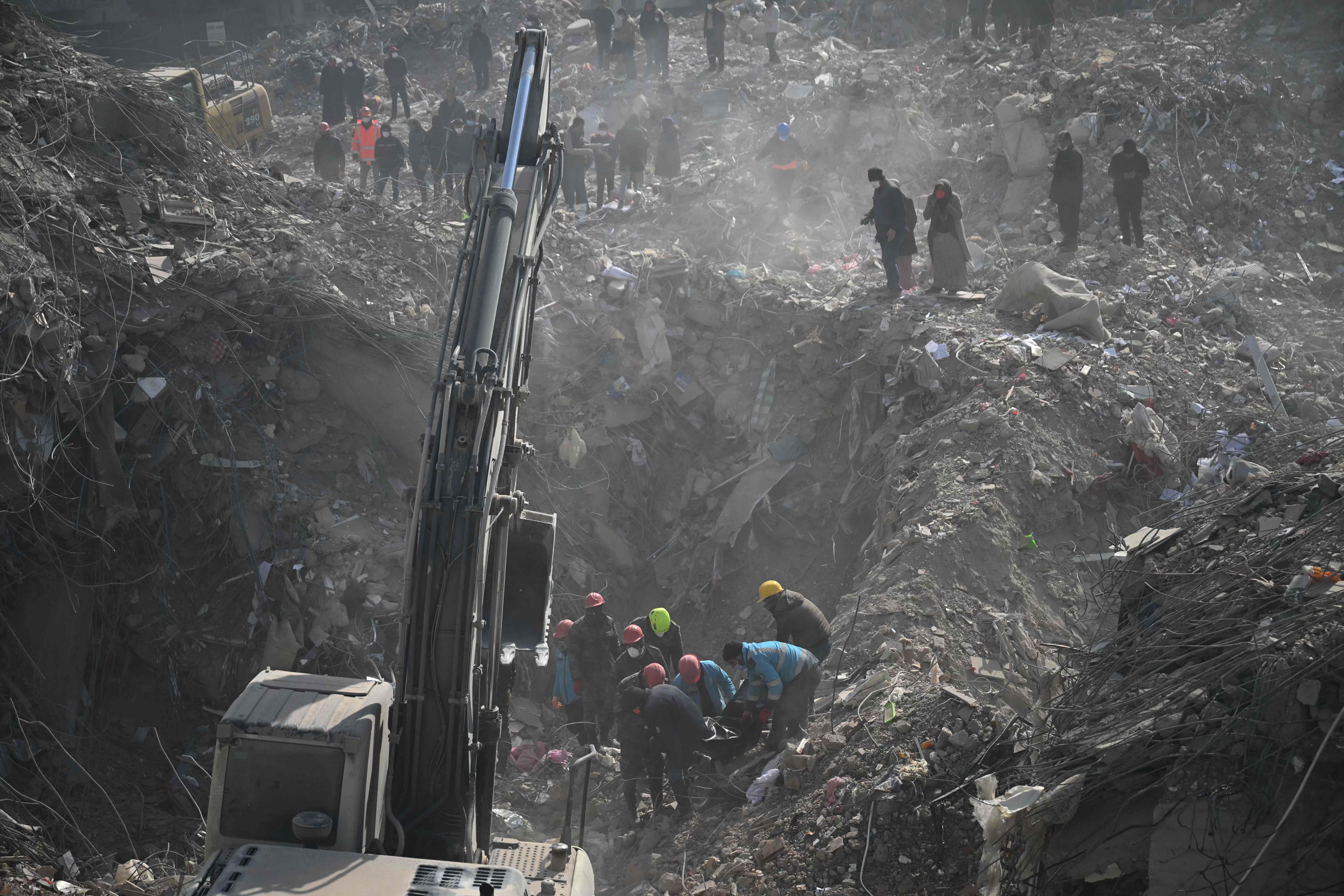
Last week’s earthquake is the deadliest in Turkey’s history, Recep Tayyip Erdogan said on Tuesday.
The death toll from the 6 February disaster climbed past 35,418, overtaking the 1939 Erzincan quake that killed around 33,000 and the worst since the modern country was founded a century ago.
More than 47,000 buildings were either destroyed or so badly damaged as to require demolition.
“We will continue our work until we get our last citizen out of the destroyed buildings,” President Erdogan said of ongoing rescue efforts.
Meanwhile, the United Nations on Tuesday launched an appeal to help millions of survivors in Syria where aid has been delayed by divisions linked to the civil war.
A convoy of 11 trucks from a UN agency crossed into northern Syria from Turkey on Tuesday, just hours after a deal to authorise two new border crossings into the rebel-controlled enclave.
Damascus said the decision showed its commitment to supporting victims on both sides of the front line.
However, critics say the deal is a political victory for embattled Syrian president Bashar al-Assad, who preempted a UN decision to force open new crossings.
A Saudi aid plane, carrying 35 tons of food, landed in Assad-held Aleppo on Tuesday, but getting aid to rebel-held Idlib has been complicated.

“This is a constant back and forth in negotiations,” said World Health Organisation spokesperson Christian Lindmeier. “Every party has to agree to receive convoys.”
The death toll is nearly certain to rise as search teams turn up more bodies – and the window for finding survivors closes.
Nevertheless, more than 200 hours after the quake struck, teacher Emine Akgul was pulled from an apartment building in Antakya by a mining search and rescue team, Anadolu news agency reported.
In Adiyaman province, rescuers reached 18-year-old Muhammed Cafer Cetin, and medics gave him an IV with fluids before attempting a dangerous extraction from a building that crumbled further as rescuers were working.
UN secretary-general Antonio Guterres said the devastation “is one of the worst in recent memory” as he announced a $397m fund to provide “desperately needed, life-saving relief for nearly five million Syrians – including shelter, healthcare, food and protection”.

Asked about a possible meeting with Mr Assad, Mr Guterres said high-level visits that divert resources were less important right now than stepped-up relief efforts.
"I am following that very, very closely," he said, "and whenever it would be useful and positive, I am ready to do whatever is needed".
Separately, gunmen stormed a Syrian hospital caring for a baby girl born under the rubble of her family’s earthquake-shattered home and beat the facility’s director.
The infant, named Aya – Arabic for “a sign from God” – has been at the hospital since a rescue in the northern Syrian town of Jinderis that featured in news reports around the world. Buried under the concrete, the baby was still connected by her umbilical cord to her dead mother.
An official said the hospital’s director had suspected a nurse who was taking pictures of Aya was planning to kidnap her. The nurse returned later accompanied by the gunmen.

Police had begun guarding the girl after several people showed up falsely claiming to be her relatives, the official said.
Aya’s great-uncle, Saleh al-Badran, said the baby’s paternal aunt will raise her.
Meanwhile, in Britain King Charles met volunteers from the Turkish and Syrian diasporas in London on Tuesday to express his support.
He launched Syria’s House, a temporary Syrian community tent in Trafalgar Square, and also shook hands with charity workers during a visit to West London Turkish Volunteers and chatted with them as they packed scarves, blankets, jumpers, and packets of biscuits as part of earthquake relief efforts.
The Disasters Emergency Committee, which represents 15 aid charities in the United Kingdom, has raised £60m so far, including “a generous donation” from the royal family, it said.
Reuters and Associated Press contributed to this report







